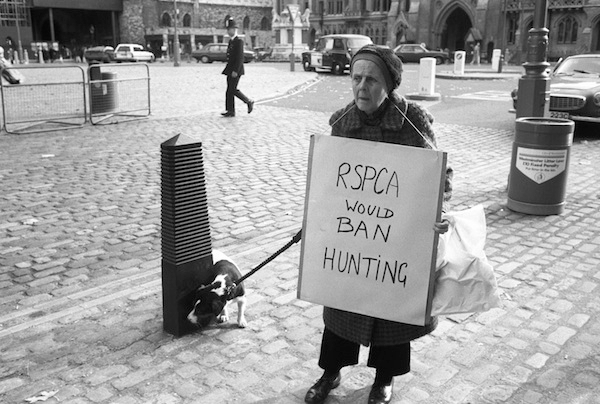Late last year a Judge in Oxford Magistrates’ court questioned the RSPCA for running up a legal bill of a third of a million pounds on a low-level case when the defendant’s costs were £35,000. This prompted me to ask some questions about private prosecutions and the RSPCA’s prolific use of them through the formal route of parliamentary questions and a debate in Westminster Hall. It has become worryingly clear that no-one, including the Government, has any idea what is going on.
Private prosecutions might be funded privately (although even this comes with caveats), but they take place in the criminal courts so surely the Government would know how many such prosecutions take place, what the outcomes were, and what cost the taxpayer was left to meet? I was wrong. The Ministry of Justice does not know, nor does the Attorney General’s office. I also assumed the Ministry of Justice would know, at the touch of a button, what proportion of UK private prosecutions are brought by the charity. Wrong again. They don’t know that either.
The caveat about the funding of private prosecutions is that whilst a prosecutor must pay for the lawyers who bring the prosecution they rarely, if ever, seem to end up paying the defendant’s costs if that prosecution fails. Even in a recent case against involving a Cheshire farmer and his 19 year old daughter (where the RSPCA offered no evidence on the first morning of the three day trial) the defendant’s costs of over £10000 were met from ‘central funds’ i.e. the taxpayer, rather than by the RSPCA which brought the failed case.
So it is relevant to ask how much of our money is being paid out to defendants in failed prosecutions brought by the RSPCA, especially when the Government is quite rightly getting a grip on public spending? Guess what? The Ministry of Justice could not answer that question either.
The RSPCA brings thousands of cases to court every year. It is probably the biggest private prosecutor in the country and may well be the second biggest prosecutor of all criminal cases after the Crown Prosecution Service. It certainly brings more prosecutions than Revenue and Customs or the Health and Safety Executive. Yet it is clear that private prosecutions are slipping under the radar and there is no power for the state to inspect or regulate the operations of private prosecutors by political campaigning charities such as this.
After my recent debate the Attorney General wrote to the RSPCA suggesting that it commission a review of its prosecutions by ‘an experienced criminal barrister’, a suggestion to which they have so far failed to respond. This is not an acceptable situation. We must know who is bringing a case through the criminal courts, how much it costs the taxpayer and have some way of independently ensuring those who prosecute do so to the same visibly objective standards as the CPS. The alternative is leaving private prosecutors free to use the criminal justice system as a means of pursuing their political agendas, which is something which might well be happening now.
Simon Hart is Conservative MP for Carmarthen West and South Pembrokeshire.






Comments